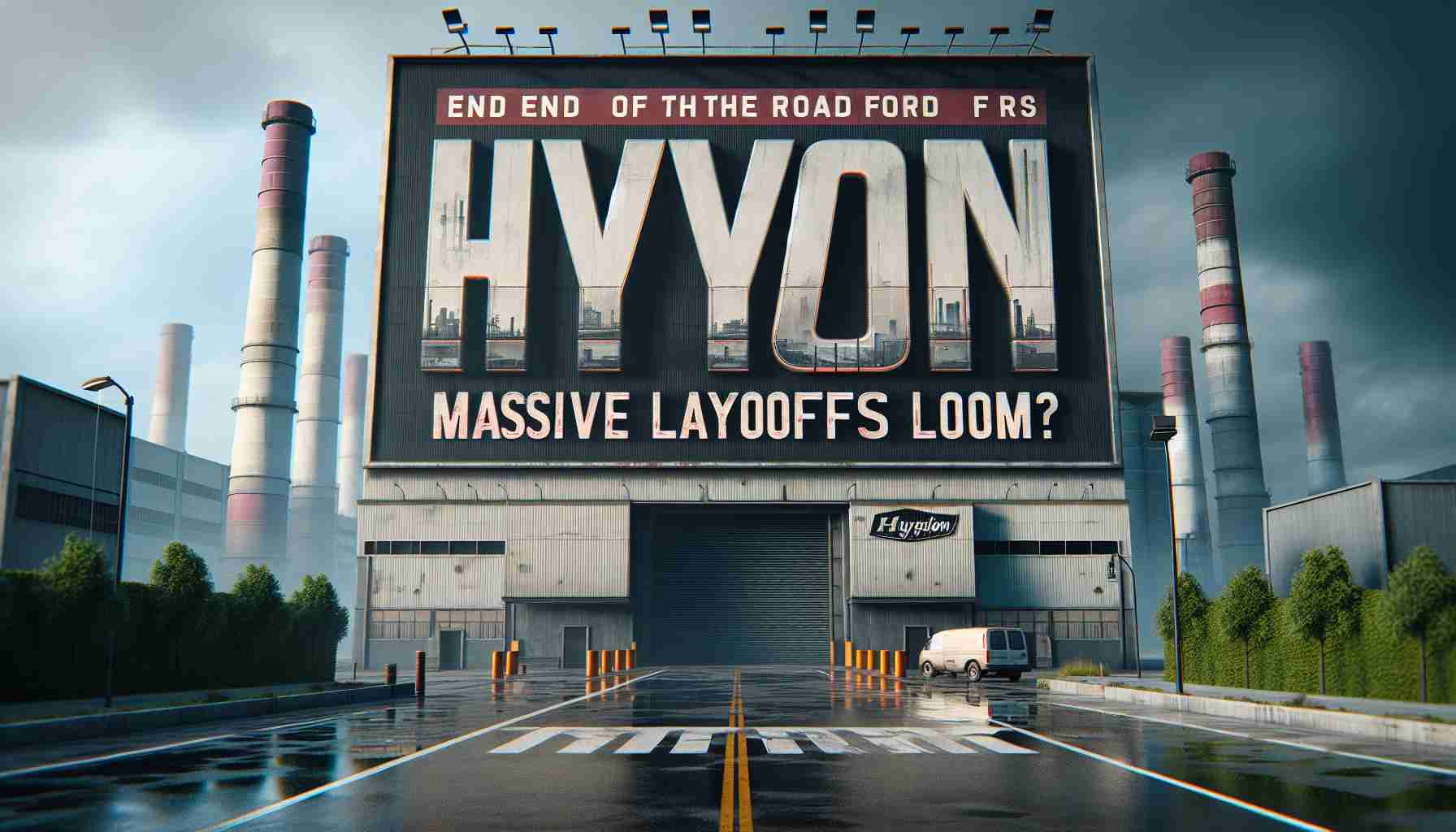Hyzon Motors, the ambitious startup focused on hydrogen-powered trucks, is facing dire financial challenges. Plans are underway to dissolve the company’s assets, which may lead to the termination of nearly all its employees as early as February. The move comes after the company reported severe cash shortages and an increasingly hostile environment for electric vehicle (EV) companies.
In a recent announcement, Hyzon sought shareholder approval for a strategic maneuver aimed at protecting creditor interests, which circumvents traditional bankruptcy proceedings. A notification sent to employees revealed that if funding efforts or buyer negotiations do not succeed, significant layoffs could be imminent. This notice impacted workers at facilities in Bolingbrook, Illinois, as well as in Troy, Michigan.
Once heralded as a frontrunner in the hydrogen sector, Hyzon had ambitious plans, including the construction of the country’s largest fuel cell factory. Yet, financial missteps—exemplified by an SEC probe following allegations of misleading investors—have marred its reputation. Despite raising considerable funds upon going public in 2021, the company has struggled with dwindling revenues and soaring losses.
As government subsidies begin to wane under shifting political conditions, Hyzon’s future appears increasingly uncertain. With its stock price plummeting further and market confidence eroding, the hydrogen trucking pioneer may be on the brink of collapse. Time is running out for this bold venture.
Hyzon Motors: What’s Next for the Hydrogen-Powered Truck Innovator?
Overview of Hyzon Motors’ Situation
Hyzon Motors, a startup praised for its pioneering efforts in hydrogen-powered trucks, is currently navigating a perilous financial landscape. The company is reportedly planning to dissolve its assets due to severe cash shortages, which could lead to a significant workforce reduction by February. This alarming move follows a series of financial setbacks, including an SEC probe regarding potential misleading practices aimed at investors.
Financial Challenges
The hydrogen vehicle market, once bustling with potential, has become increasingly hostile. As government subsidies diminish against a backdrop of changing political landscapes, many companies in the electric vehicle (EV) sector, including Hyzon, are experiencing intense financial difficulties. After an initial surge post-public offering in 2021, Hyzon has been grappling with a steep decline in revenues and a rise in overall losses, causing its stock price to drop significantly.
Strategic Maneuvers and Employee Impact
In a bid to secure funding and protect creditor interests, Hyzon Motors has sought shareholder approval for a strategic maneuver that effectively bypasses traditional bankruptcy procedures. A notification sent to employees indicated that significant layoffs could occur if ongoing funding efforts or potential buyer negotiations fail. This precarious situation has particularly affected workers at Hyzon’s facilities in Bolingbrook, Illinois, and Troy, Michigan.
Potential Outcomes and Market Impact
The impending collapse of Hyzon Motors could have broader implications for the hydrogen vehicle market. As one of the more ambitious players, its downturn might deter investment in hydrogen technology and affect public perception of its viability. The company once had plans to establish the largest fuel cell factory in the U.S., but these ambitions now hang in the balance.
Pros and Cons of Hydrogen-Powered Vehicles
Pros:
– Zero Emissions: Hydrogen-powered vehicles emit only water vapor, contributing to cleaner air.
– Quick Refueling: Refueling hydrogen vehicles can take as little as 15 minutes, similar to traditional fuel stations.
– Long Range: Hydrogen vehicles typically offer longer driving ranges compared to battery electric vehicles (BEVs).
Cons:
– Infrastructure Challenges: Limited refueling infrastructure has hindered widespread adoption.
– High Production Costs: Producing hydrogen, especially green hydrogen, can be expensive and energy-intensive.
– Market Competition: The rise of battery electric vehicles impacts investment and consumer interest in hydrogen solutions.
Insights and Future Predictions
With the EV market evolving rapidly, the trajectory for hydrogen technology is uncertain. While some experts believe that hydrogen can complement battery technology in certain applications (like heavy-duty trucking), the competition is fierce, and many investors are currently favoring BEVs due to their growing infrastructure and decreasing costs.
Conclusion
Hyzon Motors’ current plight is a critical indicator of the wider challenges facing the hydrogen vehicle sector. The economic viability of hydrogen-powered trucks is now under scrutiny, and stakeholders must gauge whether the technology can withstand these turbulent times. As questions loom about the future of Hyzon Motors and hydrogen trucks in general, the next few months will be pivotal in determining their fate in the transportation landscape.
For more insights on the evolving automotive market, visit Hyzon Motors.
